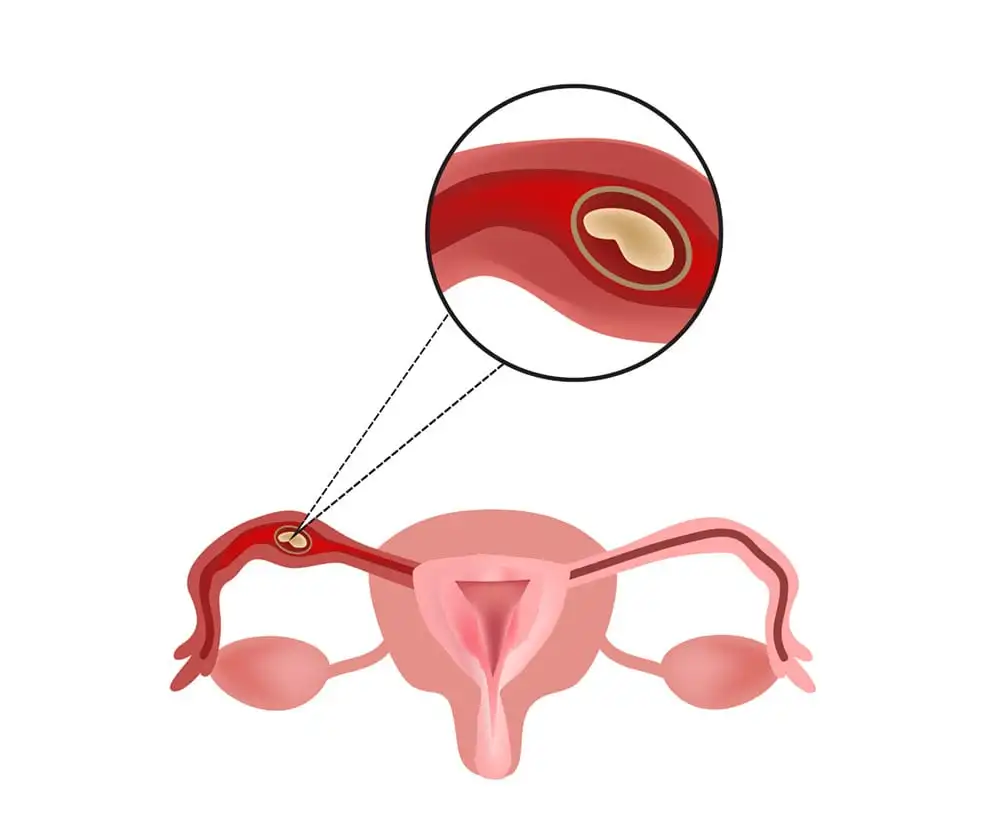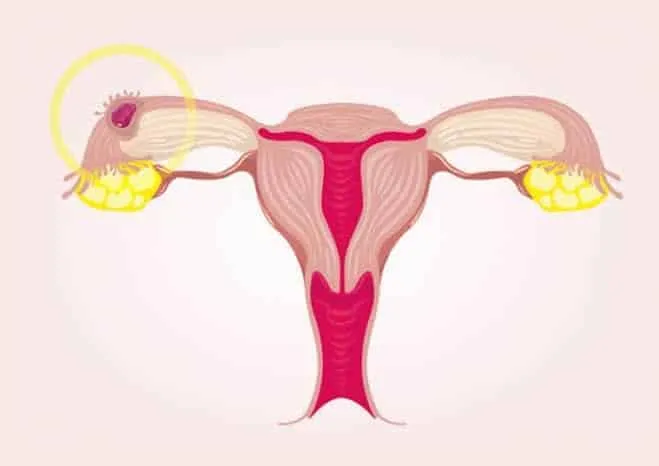Find out what an ectopic pregnancy is, what its symptoms are, how to react and find out about the treatment and prevention of this condition.
Firstly, in a normal pregnancy, the fertilized egg implants in the woman’s uterine cavity. However, in ectopic pregnancy, this does not occur. The egg, instead of implanting itself in the uterus, implants itself in other anomalous locations, such as the fallopian tubes or uterine tubes. Therefore, also known as tubal pregnancy, it is the most common cause of death in the first trimester of pregnancy. Despite this, its occurrence rates are only 1% to 2% in developed countries.
Also, the danger of ectopic pregnancy is that there may be complications. Thus, the most common of these is rupture of the uterine tube, which can lead to death. However, a fetus from an ectopic pregnancy can also survive for several weeks. Therefore, it is important to emphasize that this type of pregnancy cannot be continued. There is no way for the fetus to develop completely under the conditions that occur, precisely posing a great risk to the pregnant woman.
Above all, it is possible to see the great importance of gestational ultrasound for women. The examination predicts the implantation site of the fetus, and allows precautions to be taken before complications occur. Furthermore, it is also important to always maintain hormonal levels of estrogen and progesterone, which guarantee good female sexual development.

Risk factors
In principle, all women are at risk of having an ectopic pregnancy. However, there are several factors that increase the chances and risks of this happening.
Among them are
- previous ectopic pregnancy;
- smoking;
- previous pelvic infections;
- endometriosis;
- sexually transmitted diseases such as chlamydia, syphilis and HPV;
- the use of the IUD (intrauterine device), which can be used as contraceptive
- having multiple sexual partners

Symptoms
Firstly, symptoms usually appear from the sixth week of pregnancy, and most commonly, its main symptom is menstrual delay. In addition, there is also the occurrence of other secondary symptoms, such as vaginal bleeding, lower abdominal pain, cramps, dizziness and diarrhea.
Despite this, it is common for some women to not experience any symptoms until the ectopic pregnancy ruptures. In this case, the risk increases and great care must be taken during treatment. Therefore, a woman who reaches this stage experiences symptoms of internal bleeding, sharp and intense abdominal pain, pain in the shoulders and neck, and, depending on blood loss, dizziness, sweating and fainting.

Diagnosis
The most common means of diagnosis are:
The woman uses a blood or pregnancy test to check whether she is actually pregnant. After finding out about the pregnancy, she needs to pay attention to the symptoms, using medical check-ups and ultrasounds for monitoring.
Therefore, as you use ultrasound to monitor your baby, you also receive information about the pregnancy process. With the exam, it is possible to check if there is any suspicion of an ectopic pregnancy. Fortunately, if there is suspicion, there is still a chance that the exam will not show the fetus in the uterus because it is still too early.
To confirm the diagnosis, it is possible to perform the beta HCG test, which measures the amount of hormone produced by the placenta in a typical pregnancy. However, if more urgent confirmation is needed, it is possible to use the laparoscopy procedure. It is a simple procedure that involves an incision below the navel, directly revealing the diagnosis.

Ectopic pregnancy treatment
Treatment consists of removing or diluting the fetus. Unfortunately, in the vast majority of cases, the pregnancy must be terminated through a surgery called laparoscopy. In more extreme cases, it is possible for the damaged tube to be removed along with the pregnancy, making future pregnancies impossible.
From another perspective, when the pregnancy is still early, there is another treatment. It is possible that with the use of medications such as methotrexate, the mother reabsorbs the fetus, or it is expelled during the next menstruation. To do this, the fetus must not have a heartbeat or be longer than 4 centimeters.
For future pregnancies with remaining tubes, it is important to consider that an analysis of their preservation must be carried out. Although it does not alter fertility in most cases, it is possible that it may occur depending on the condition of the tube. However, it must be remembered that other methods, such as fertilization in vitro can still be considered for pregnancy.
In short, a woman who has already been through a pregnancy like this, and has been trying to get pregnant for more than a year, can see a doctor to find out her options. There is an exam called hysterosalpingography, which is an x-ray of the female reproductive system, which allows us to check the situation they are in. Thus, the examination is carried out by injecting iodine into the cervix and with the help of a catheter, it is seen whether everything is working normally.

Prevention
Still, prevention is closely linked to the means of normal pregnancy care, as well as the means of preventing sexually transmitted diseases. Therefore, with the control and prevention of sexually transmitted diseases, it is also possible to prevent ectopic pregnancy, such as with the use of condoms. Basically, the use of contraceptives acts to prevent pregnancy, especially for women who have risk factors.
Did you like to know about ectopic pregnancy? So stay up to date with everything about motherhood and check out the article Chemical pregnancy – What it is, why it happens and what causes the problem.
Fontes: bebe.com.br Manual msd
Featured image source: PtMedBook

Sign up for our newsletter and stay up to date with exclusive news
that can transform your routine!
Warning: Undefined array key "title" in /home/storelat/public_html/wp-content/plugins/link-whisper-premium/templates/frontend/related-posts.php on line 12
Warning: Undefined array key "title_tag" in /home/storelat/public_html/wp-content/plugins/link-whisper-premium/templates/frontend/related-posts.php on line 13



